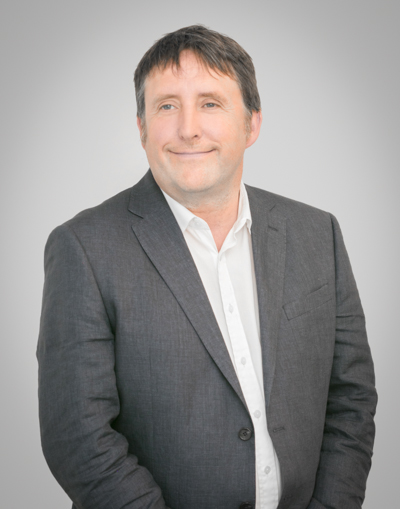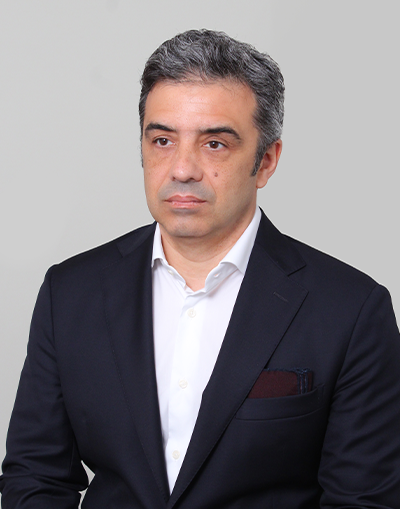Gresham House Energy Storage Fund plc
Powering the renewable energy transition

Powering the renewable energy transition
Gresham House Energy Storage Fund plc (LSE: GRID) is the UK’s largest fund investing in utility-scale battery energy storage systems, known as BESS.
GRID invests in a diversified portfolio of BESS projects across Great Britain and can also invest internationally. It seeks to provide shareholders with an attractive and sustainable dividend over the long term, alongside the prospect of capital growth.
As an established market leader in BESS in the UK, GRID currently operates in excess of 1GW of storage capacity.
Why invest in battery energy storage?
The UK’s approach to electricity generation is undergoing fundamental change, shifting from reliance on fossil fuels towards an energy mix dominated by renewable energy.
Energy storage is a cost-effective solution to the intermittency of renewables, addressing supply-demand imbalances on the national grid, in real time.
Want to keep up to date?
Listen to this webinar recording to hear more about GRID’s landmark tolling agreement with Octopus Energy:
In this video, we provide an insight into GRID’s operations and asset pipeline:
Watch GRID’s 2024 Capital Markets Day, during which Fund Manager, Ben Guest, set out the framework for GRID’s three-year plan. The event featured senior members of the GRID team, plus guest speakers from Octopus Energy and Modo Energy.
Investment approach
The investment team have constructed a diversified portfolio of operational utility-scale BESS projects. Each project can generate multiple revenue streams to allow GRID to deliver on its return objectives.
GRID optimises it assets through allocating capacity across the available revenue sources, primarily by balancing between trading and frequency response based on market drivers.
There are three main categories of revenues for BESS in most geographic jurisdictions, each with different rules, pricing, and local terminology:
- Trading – asset-backed buying and selling of power through wholesale markets and system operator balancing mechanisms.
- Ancillary services – mostly Frequency Response today, this is the provision of a dynamic response to small supply-demand imbalances, second by second, to maintain the constant electrical frequency required on the GB grid. The largest of these services in GB is Dynamic Containment.
- Capacity Market – a mechanism whereby generators (including batteries) enter into long-term contractual arrangements to provide capacity to the system when there is the greatest need. This is typically a fixed fee paid to be available and often requires no action day to day.
Key risks
- The value of the Fund and the income from it is not guaranteed and may fall as well as rise. As your capital is at risk you may get back less than you originally invested
- Past performance is not a reliable indicator of future performance
How to invest
The fund is listed on the Specialist Fund Segment (SFS) of the London Stock Exchange and can be accessed using the ticker GRID.
Due to its SFS listing, some platforms may not list the fund or will require interested investors to self-elect as a professional investor in order to be able to invest.
Please contact the team at info@greshamhouse.com for more information.

Annual General Meeting (AGM)
The 2025 Annual General Meeting (AGM) was held at 11:30am on Tuesday, 24 June 2025 at 154-160 Fleet Street, Blackfriars, London, EC4A 2DQ.
The results of the 2025 AGM were shared by RNS following the meeting and are available here.
Board

John is a highly-experienced international executive in the energy sector and an investor and advisor in renewable energy and digital technology. In his early career, John worked in civil nuclear power generation and held a number of senior roles at BP, focusing on the North Sea and Azerbaijan. Latterly at BP, he held a range of corporate-level executive roles, including Group Chief Information Officer.
He was also responsible for group-wide physical and cyber security and led the development of corporate digital transformation investment activity. John is currently a senior advisor to global blue-chip consultants specialising in energy and digitisation, a partner with donedeal (Monaco) – a boutique financial advisory and M&A house – and is on the board of cyber security firm Global Integrity. John also serves on the Enterprise Committee of the Royal Academy of Engineering.

Andy is a Chartered Accountant and Corporate Treasurer with 20 years’ operational and financial leadership in the energy sector, having served as CEO Generation at Drax Group plc, a FTSE 250 company, and CEO, UK and Middle East, for Sembcorp Industries, which is listed on the Singapore Exchange.
He brings end-to-end expertise in battery storage, connectivity and government engagement, underpinned by deep sector relationships with NESO, Ofgem and UK Government.
Andy is a director of Encyclis and has recently become Chair of the Board of Trustees for a children’s charity, PANS PANDAS UK.

Isabel’s career investing equity in infrastructure worldwide includes billion-dollar private funds for AIG in Asia, ABN AMRO in Europe and pension schemes in the UK. She has served as a non-executive representing transport users across the UK and at Heathrow Airport.
Isabel is also a director of Schroder Oriental Income Fund Limited and Utilico Emerging Markets Trust plc. Fluent in Mandarin Chinese, Isabel has an MBA from the University of Chicago Booth School of Business, a Master in Public Policy from Harvard Kennedy School, and a BA in economics from the Ohio State University. She has worked in the US, Hong Kong, and for the last 20 years in London.

Duncan is a Chief Financial Officer and Finance Director with over 20 years’ public and private commercial experience. He is a Fellow of the Institute of Chartered Accountants and qualified with PwC in London. Duncan was part of the senior management team that turned Corona Energy from a gas trading business into the largest independent supplier of gas to UK businesses and has also served as CFO of an M&A team bidding for thermal power stations. Duncan is also a non-executive director and the Chair of the Audit Committee of Atrato Onsite Energy plc.
Recently he spent several years as Finance Director of Belltown Power, a renewable energy site operator (hydro, solar and wind) holding a portfolio of 215 MW. He is a Trustee of Cambodian Children’s Fund UK.

Cathy is a legal adviser who has specialised in the investment company sector for over 20 years. Cathy is currently a Partner at CMS, a top global law firm. Prior to this, she worked in the asset management practice of another top global law firm for almost 20 years, 8 of which as a Partner.
Cathy’s work has encompassed investment fund structuring and fundraising for domestic and international investment funds. Cathy is also a member of the Law Society Company Law Committee and sits on the Regulatory and Governance Committees of LPeC, the industry association for listed private capital funds.

David is a financial journalist and commentator for several leading publications, including The Financial Times, Citywire and MoneyWeek. He is Executive Director of leading alternative finance news and events service altfi.com, which covers major trends in marketplace lending, crowdfunding and working capital provision for SMEs. David is the author of a number of books, including a bestseller on ETFs and their use within portfolios in Europe for the FT.
David was a Director at The Rocket Science Group and before that a Senior Producer in business and science for BBC TV. He is also a Non-Executive Director on the SQN Secured Income Investment Trust and the Aurora Investment Trust.
Investment team

Energy Transition
Ben has been Managing Director and Head of the Gresham House Energy Transition division since November 2017.
He is the Fund Manager of Gresham House Energy Storage Fund plc and was, through 2020, also Fund Manager for the British Strategic Investment Fund (BSIF) strategy which grew AUM to £350mn under his leadership.
Ben started his fund management career at Lazard Asset Management in 1994 and worked there for nine years. He later founded Hazel Capital in April 2007, serving as Managing Partner and CIO and which became Gresham House Energy Transition on the acquisition of Hazel Capital’s business activities in November 2017.
Prior to founding Hazel Capital, he was a co-founder of Cantillon Capital, where he managed a US$1bn equity hedge fund focused on global technology, media and telecom.
Ben currently serves as a director of over 50, mostly project, companies.
He has 27 years of investment experience and holds a BEng in Mechanical Engineering from Imperial College.

Rupert has been the Managing Director of Gresham House Asset Management Ltd since September 2015. He is a member of the Group Management and Investment Committees.
Rupert has a proven track record of delivering significant value to shareholders and has over 32 years’ experience in asset management, private banking and wealth management, focusing on product innovation, investment management, business development, banking and wealth structuring.
Before joining Gresham House, Rupert was CEO and CIO of Schroders (UK) Private Bank for 11 years, and spent 17 years at Rothschild, where latterly he was Head of Private Clients for Rothschild Asset Management.

James is an Associate Director at Gresham House. James moved to the Energy Transition team in 2019 after joining Gresham House in 2018 as part of Gresham House Ventures, having previously been at Livingbridge since 2016.
James is the Assistant Fund Manager for Gresham House Energy Storage Fund plc.
He is an experienced financial modeller and investment professional and his current role covers a broad range of work across fund management and new investments, primarily focused on energy storage and renewables. Prior to joining the Energy Transition team, he worked as an Analyst covering mostly early-stage companies in the Venture Capital and Equity Fund vehicles as part of Gresham House Ventures. This role provided experience with investment decisions across a variety of markets as well as exposure to growth companies and management of quoted investment vehicles.
His career started in TMT audit at EY where he spent three years and qualified as a chartered accountant.
James holds a first-class Master’s degree in Mathematics from Durham University.

Charlie is an Investment Director in the Gresham House Energy Transition team. His current role began in February 2021, following a year in the team as a contractor. He is responsible for executing investments in infrastructure projects such as energy storage systems, whether acquired before construction or when already operational.
Charlie has extensive experience in the development, funding and asset management of distributed energy infrastructure projects assisting both investment managers and project developers at every stage of bringing their projects to fruition. He has worked on projects in a wide range of technologies including solar PV, hydroelectric power, anaerobic digestion, combined heat and power, thermal heat networks, gas peaking and grid-scale battery storage.
He started his career over 20 years ago as a commercial solicitor before transitioning to renewable energy, working with investment management firms for the last nine years.
Charlie studied science of materials at Trinity College Dublin and has an MBA from INSEAD, France.

Nick joined Gresham House in January 2021. He has over 20 years’ accounting and finance experience, having qualified as a Chartered Accountant in 2000.
Prior to Gresham House, Nick worked as Finance Director for an internationally focused property investment group and before that was Associate Director of Tax at Temenos Group SA in Switzerland.
Nick holds a BA (Hons) in History with Information Technology from the University of Exeter and is a Chartered Accountant and Chartered Tax Advisor.

Stephen joined Gresham House in May 2018 following the acquisition of FIM Services Ltd, where he had served as Chief Financial Officer and Compliance Officer since 2013.
Prior to this, Stephen worked at E.ON, where he held a variety of financial and commercial roles from 2000 onwards, ranging from leading large finance teams, developing power station projects, M&A transactions, and working with HM Government delivering low carbon solutions. His experience includes leading on the commercial aspects of the acquisition of the Staffordshire Street Lighting project and the sale of Horizon Nuclear Power to Hitachi.
Stephen began his career at PwC in 1996 and trained as a Chartered Accountant with an emphasis on corporate tax issues. He has 24 years of industry experience and is a law graduate and Barrister, having been called to the Bar in 1996.

Harry joined Gresham House in April 2023.
Prior to joining Gresham House Harry worked as an Auditor at Grant Thornton for three years focussing primarily on technology and media businesses.
Harry holds a first-class Master’s degree in Chemistry from the University of Oxford and qualified as a chartered accountant in September 2022.

Richard leads Gresham House’s international equity strategy within the firm’s Energy Transition division. He joined Gresham House in January 2026 following its acquisition of SUSI Partners, where he served as Co-CIO.
Richard had joined SUSI Partners in 2020 to lead the firm’s dedicated energy storage strategy, took over management of the broader equity business in 2021, and in late 2023 was appointed Co-CIO. In this role, he was responsible for overall investment strategy formulation and execution as well as portfolio management of the firms’ Equity strategy.
Before joining SUSI, Richard was the Chief Financial Officer at Pivot Power and Senior Vice President, Distributed Energy & Onshore Renewables, at Macquarie Green Investment Group. Prior to that, he worked at the UK Department of Energy and Climate Change as well as JPMorgan.

Hugo joined Gresham House’s Energy Transition Investment team following several years working in renewable energy development.
Hugo is pursuing a CFA accreditation and has passed his level 1 exam, scoring above the 90th percentile of candidates.
Hugo holds a first in Civil Engineering from the University of Exeter.

Alexander leads Gresham House’s credit strategy within the firm’s Energy Transition division. He joined Gresham House in January 2026 following its acquisition of SUSI Partners, where he served as Co-CIO.
Alexander had joined SUSI in 2015 to further develop the firm’s asset-backed credit financing solutions, was responsible for SUSI’s Credit business from 2017 onwards, and in late 2023 was promoted to Co-CIO. In this role, he was responsible for overall investment strategy formulation and execution as well as portfolio management of SUSI Partners’ credit strategy.
Before joining SUSI, Alexander worked for private equity fund manager Perseus L.L.C. and in the utility/public sector department of the investment bank at Sal. Oppenheim Jr. & Cie.

Filinto is Managing Director of Gresham House’s Energy Transition division since April 2025. He is also the Fund Manager for Gresham House Global Energy Storage Fund.
Prior to Gresham House, Filinto was the Managing Director of Sonnet, iCON Infrastructure’s Iberian investment platform, which focused on energy and infrastructure. Before, Filinto was Managing Director and Head of NextPower III, a global renewables investment fund, at NextEnergy Capital.
With almost 20 years of experience in energy transition, Filinto held several senior management, business development, asset management, and investment positions with cross-sector and international exposure in markets such as Europe, North America, Latam, and India.
Filinto holds a Master in Finance degree (Catolica-Lisbon School of Business and Economics) and a Bachelor’s in Management (Moderna University).

Owen joined Gresham House in October 2024 as a Project Development Manager. He is responsible for ensuring our portfolio of storage and renewable projects in development are at an excellent standard, ready for investment and construction.
Prior to Gresham House, Owen worked as a Project Manager at EDF Renewables where he was responsible for the development of standalone BESS and PV/BESS hybrid projects in GB. Before this, he worked as an Energy Storage Analyst at ib Vogt GmbH developing an origination pipeline of BESS projects across 7 global markets. With over three years of experience in the energy storage sector, Owen has a strong understanding of end-to-end project development and what it takes to produce high-quality renewable infrastructure investments.
Owen holds a BEng in Mechanical Engineering from the University of Birmingham and an MSc in Sustainable Energy Futures from Imperial College London.

Carles leads the risk management function for Europe. He became part of the Gresham House team in January 2026 following its acquisition of SUSI Partners, which he had joined in 2020.
With 30 years of experience, Carles has performed different underwriting and risk management roles within the financial services industry at companies such as ABB Financial Services or Intrum Justitia Debt Finance.
Carles holds a BBA & MBA from ESADE business school in Barcelona and has obtained CFA and CAIA charter holder designations.

Marco leads Gresham House’s Energy Transition division, spanning Equity, Credit, Asia, and Global BESS strategies. He joined Gresham House in January 2026 following its acquisition of SUSI Partners, where he served as CEO.
Marco had joined SUSI Partners in 2017 as Chief Investment Officer, directing global investment and asset management activities. He became Co-CEO in 2020 and assumed full leadership as CEO in 2023.
Before joining SUSI, Marco was a Senior Vice President at Brookfield Asset Management, where he was responsible for the European renewable energy investments team and led the strategy formulation, origination, and execution activities in this segment. Prior to that, he was a Principal in the Infrastructure and Private Equity team at Arcapita, a global alternative assets firm, after starting his career in M&A at Dresdner Kleinwort Wasserstein.
Shareholder queries
Computershare Investor Services plc
The Pavilions
Bridgwater Road
Bristol
BS13 8AE
Shareholder information
View or subscribe to the key shareholder information for this company.
| Date | Factsheet | Commentary |
|---|---|---|
| 2025-09-30 00:00:00 | Factsheet - September 2025 >> | |
| 2024-12-31 00:00:00 | Factsheet - December 2024 >> | |
| 2024-09-30 00:00:00 | Factsheet - September 2024 >> | |
| 2024-06-30 00:00:00 | Factsheet - June 2024 >> | |
| 2024-03-31 00:00:00 | Factsheet - March 2024 >> | |
| 2023-03-31 00:00:00 | Factsheet - March 2023 >> | |
| 2021-03-31 00:00:00 | Factsheet - March 2021 >> |
Gresham House Energy Storage Fund plc – Supplementary Prospectus April 2023 >>
Gresham House Energy Storage Fund plc – Prospectus May 2022 >>
Gresham House Energy Storage Fund plc – Registration document May 2022 >>
Gresham House Energy Storage Fund plc – Summary document May 2022 >>
Gresham House Energy Storage Fund plc – Securities Note May 2022 >>
Gresham House Energy Storage Fund plc – Share Issuance Programme >>
Gresham House Energy Storage Fund plc – Summary document >>
Gresham House Energy Storage Fund plc – Securities Note >>
Gresham House Energy Storage Fund plc – Registration document >>
Introduction
The Fund (or the Company), invests in a diversified portfolio of utility-scale battery energy storage systems (‘‘BESS Projects’’), which utilise batteries and may also utilise generators. The BESS Projects comprising the Portfolio are located in diverse locations across Great Britain.
Individual projects are held within special purpose vehicles into which the Company invests through equity and/or debt instruments. It is intended that each BESS Project Company holds one project but an BESS Project Company may own more than one project. The Company will typically seek legal and operational control through direct or indirect stakes of up to 100%. The BESS Projects may participate in joint ventures or co-investments, including, without limitation with other investors or entities managed, operated or advised by the Gresham House Group. This approach enables the Company to gain exposure to assets within the Company’s investment policy, the like of which the Company would not otherwise be able to acquire on a wholly-owned basis. In such circumstances the Company will seek to secure its shareholder rights through protective provisions in shareholders’ agreements, co-investment agreements and other transactional documents.
Asset type and diversification
The Fund (or the Company), currently intends to invest primarily in BESS Projects using lithium-ion battery technology as such technology is considered by the Company to offer the best risk/return profile. However, the Company is adaptable as to which energy storage technology is used by the projects in which it invests and will monitor projects and may invest in projects with alternative battery technologies such as sodium and zinc derived technologies, or other forms of energy storage technology (such as flow batteries/machines and compressed air technologies), and will consider such investments (including combinations thereof), where they meet the Company’s investment objective and policy.
The Company also intends to invest in BESS Projects which use gas generators or diesel or dual-fuel diesel-and-gas reciprocating generators on projects which have a ‘‘net export’’ connection. These are likely to be generators in the range of 0.5 to 10MW per engine.
The Company invests with a view to holding assets until the end of their useful life. BESS Projects may also be disposed of, or otherwise realised, where the Manager determines in its discretion that such realisation is in the interests of the Company. Such circumstances may include disposals for the purposes of realising or preserving value, or of realising cash resources for reinvestment or otherwise.
The Company intends that the BESS Projects in which it invests primarily generate revenue from in front of meter services, but may also provide behind-the-meter services.
BESS Projects are selected with a view to achieving appropriate diversification in respect of the Portfolio.
First, diversification will be sought by geographical location of the BESS Projects in which the Company invests across Great Britain.
Second, it is the Company’s intention that from the end of the Initial Investment Period, when any new investment is made, no single project (or interest in any project) will have an acquisition price (or, if an additional interest in an existing investment is being acquired, the combined value of the Company’s existing investment and the additional interest acquired shall not be) greater than 20% of Gross Asset Value (calculated at the time of investment). However, in order to retain flexibility, the Company will be permitted to invest in a single project (or interest in a project) that has an acquisition price of up to a maximum of 30% of Gross Asset Value (calculated at the time of acquisition). The Company will also, from the end of the Initial Investment Period, target a diversified exposure with the aim of holding interests in not less than five separate projects at any one time.
Third, the Company intends to achieve diversification by securing multiple and varied revenue sources throughout the Portfolio by investing in BESS Projects which benefit from a number of different income streams with different contract lengths and return profiles through individual BESS Projects, as well as by enabling the BESS Projects in which the Company invests to take advantage of a number of different revenue sources. Initially, it is intended that the main revenue sources will be:
- Firm Frequency Response (“FFR”) – the Company intends to invest in BESS Projects that generate FFR revenues from FFR contracts through which the Company and/or its subsidiaries will provide, on a firm basis, dynamic or non-dynamic response services to changes in frequency, to help balance the grid and avoid power outages to, initially, be entered into by Noriker with the National Grid and its subsidiaries.
- Asset optimisation – the Company intends to invest in BESS Projects that generate revenues from importing and exporting, or generating and exporting in the case of an BESS Projects including generators, power in the wholesale market and the National Grid-administered Balancing Mechanism (‘‘BM’’).
- Triads and other National Grid-related income – the Company intends to invest in BESS Projects that generate revenues from the three half-hour periods of highest system demand on the Great Britain electricity transmission system between November and February each year, separated by at least ten clear days (‘‘Triads’’) and other National Grid-related income including Generator Distribution Use of System (‘‘GDUoS’’), through which benefits are paid by DNOs to suppliers, which are passed through to electricity generators in their power purchase agreements and the National Grid’s Balancing Use of System (‘‘BSUoS’’), which recovers costs through charges levied on electricity generators and suppliers. In addition, the balancing system produces small half-hourly residual cashflows that are generally negative (a disbenefit to distributed generators) but can be positive (a benefit) and are allocated to suppliers in the same way as BSUoS charges.
- Capacity market – the Company intends to invest in BESS Projects that generate revenues by access to the benefit of contracts, or through entering into new contracts, to provide back-up capacity power to the Electricity Market Reform delivery body via 1 year and 15 year capacity market contracts.
BESS Projects in which the Company invests may diversify their revenue sources further by collaborating with renewable generators or large users of power in close proximity to an BESS Project, or providing availability based services to restore electric power stations or part of electric grids to operation. In such circumstances, the proportion of revenues coming from electricity sales may materially increase from that indicated above. From 2019, BESS Projects in which the Company may invest may also be able to enter into FFR contracts with Distribution System Operators (‘‘DSO’’) and provide reactive power services to the National Grid the timing of which is according to the current emerging DSO model.
Fourth, the Company aims to achieve diversification within the Portfolio through the use of a range of third party providers, insofar as appropriate, in respect of each energy storage project such as developers, EPC contractors, battery manufacturers and landlords. Finally, each BESS Project internally mitigates operational risk because each BESS Project will contain a battery system with a number of battery modules in each stack, each of which is independent and can be replaced separately, thereby reducing the impact on the project as a whole of the failure of one or more battery modules.
Asset sourcing
The Fund (or the Company), acquired the Seed Portfolio immediately after Admission and has identified the Exclusivity Portfolio in which the Company may invest, subject to completion of adequate due diligence and contract. Further information on this is provided in Part 9 (Seed Portfolio and Exclusivity Portfolio) of the Prospectus.
Other investment restrictions
The Fund (or the Company), will generally invest in BESS Projects where construction is substantially completed and at such a point that the BESS Project is capable of commercial operations. As a minimum, all BESS Projects will need to have in place a completed lease on satisfactory terms in relation to the land where that BESS Project is situated and an executed grid connection agreement and a certificate confirming completion of commissioning tests (‘‘G59 Certificate’’).
The Company may also provide loan finance to BESS Projects prior to acquisition so that the BESS Projects can acquire equipment prior to construction, provided that no more than 15% of Gross Asset Value (calculated at the time that finance is provided based on the latest available valuations) may be exposed in aggregate to any such investments. The Company does not intend to invest in listed closed-ended investment funds or in any other investment fund (other than, potentially, in money market funds as cash equivalents) and in any event shall not invest any more than 15 per cent. of its total assets in listed closed-ended investment funds or in any other investment fund.
Cash management
Uninvested cash or surplus capital may be invested on a temporary basis in:
- cash or cash equivalents, money market instruments, money market funds, bonds, commercial paper or other debt obligations with banks or other counterparties having a ‘‘single A’’ or higher credit rating as determined by any internationally recognised rating agency selected by the Board which, may or may not be registered in the EU; and
- any UK ‘‘government and public securities’’ as defined for the purposes of the FCA Rules.
Derivatives
Derivatives may be used for currency, interest rate and power price hedging purposes for efficient portfolio management. However, the Directors do not anticipate that extensive use of derivatives will be necessary. At the date of the Prospectus, the Fund (or the Company) has not incurred any borrowings or indebtedness or other leverage and has not granted any mortgages, charges or security interests over or in relation to any of its assets.
Efficient portfolio management
Efficient portfolio management techniques may be employed by the Fund (or the Company), and this may include (as relevant) currency hedging, interest rate hedging and power price hedging.
Leverage
The Fund (or the Company) does intend to assess its ability to raise debt and is expected to introduce leverage (at the Company level and/or the BESS Project Company level) once sufficient assets have been acquired and to the extent funding is available on acceptable terms. In addition, it may from time to time use borrowing for short-term liquidity purposes which could be achieved through a loan facility or other types of collateralised borrowing instruments. The Company is permitted to provide security to lenders in order to borrow money, which may be by way of mortgages, charges or other security interests or by way of outright transfer of title to the Company’s assets. The Directors will restrict borrowing to an amount not exceeding 50% of the Company’s Net Asset Value at the time of drawdown. There will be no cross collateralisation between the Projects.
Investment in developers
The Fund (or the Company) may invest in one or more Developers of BESS Projects through equity issued by the relevant Developer, provided that investment in Developers (calculated at the time of investment) shall be capped at £1 million in aggregate.
No consideration of adverse impacts of investment decisions on sustainability factors
The Manager has elected to exercise its discretion under Article 4(1)(b) of SFDR not to commit to considering the adverse impacts of investment decisions of the Company on sustainability factors in the manner specifically contemplated by Article 4(1)(a) of the SFDR but will continue to consider and manage these impacts in line with its Sustainable Investment Policy.
The manner in which sustainability risks are integrated into the investment decisions of Gresham House Asset Management Limited (the “Manager”) in relation to the Company
As detailed in the Energy Transition Sustainable Investment Policy, specific to the Manager’s investment division, the Manager integrates ESG (“sustainability”) risks and opportunities into the investment process.
The Manager integrates sustainability risks and opportunities through the completion of the ESG Decision Tool prior to investment. The Tool supports the identification of potential material ESG risks that need to be managed and mitigated during the investment period of the asset. The Tool also determines if there are any reasons why the asset may not be invested in at this stage for ESG reasons.
Post-investment, material sustainability risks identified through the ESG Decision Tool or as part of the division’s assessment of material sustainability risks to its assets, are monitored and managed on an ongoing basis. The Manager will also monitor ESG related data, where available, to support the ongoing management of sustainability risks for assets.
The likely impacts of sustainability risks on the returns of the Company
The Manager has determined that the sustainability risk (being the risk that the value of the Company could be materially negatively impacted by an environmental, social or governance event or condition) faced by the Company is low to medium.
The Manager has put in place processes and checks to minimise ESG-related risks associated with the manufacturing and sourcing of the components used in energy storage plants, as well as the construction and operation of these plants.
Sustainability-related disclosures
Publication date: 23 December 2022
Environmental and social characteristics
The Company is committed to investing in and increasing battery energy storage system (BESS) capacity to support the decarbonisation and electrification of energy systems. Battery energy storage systems (BESS) play an essential role in supporting the decarbonisation of energy systems and consequently the broader economy. The Company, in this way, aims to contribute positively to climate change mitigation and net zero strategies.
The Manager will assess adherence to the characteristic through measuring and monitoring:
- total operational battery energy storage capacity (megawatts (MW) and megawatt hours (MWh))
- total battery energy storage capacity under construction (megawatts (MW) and megawatt hours (MWh))
The Manager also intends to measure, monitor, and report on carbon emissions avoided (tCO2e) as a result of the operation of BESS and increase in BESS capacity. The Manager is in the process of finalising a robust methodology to estimate the carbon emissions avoided through the increased adoption of BESS in energy systems.
Summary
The Company is committed to investing in and increasing battery energy storage system (BESS) capacity to support the decarbonisation and electrification of energy systems. Battery energy storage systems (BESS) play an essential role in supporting the decarbonisation of energy systems and consequently the broader economy. The Company, in this way, aims to contribute positively to climate change mitigation and net zero policies.
The Company promotes environmental or social characteristics but does not have sustainable investment as its objective.
As detailed in the Gresham House Energy Transition Sustainable Investment Policy, the Manager integrates sustainability risks and opportunities into the pre-investment process for all assets through the completion of the ESG Decision Tool prior to investment. Post-investment, material sustainability risks identified through the ESG Decision Tool or as part of the division’s assessment of material sustainability risks are monitored and managed on an ongoing basis.
In line with the Company’s focus on supporting decarbonisation of the economy, the Manager will consider any climate-related risks and opportunities within the acquisition and construction phase and aim to mitigate or minimise risks.
At least 96% of the Company’s investments are aligned with the environmental and/or social characteristics of the Company. The Company does not commit to making sustainable investments as defined under the SFDR.
The Manager will measure and monitor the MWs and MWhs of operational BESS capacity and BESS capacity under construction on a regular basis. This is a central objective and outcome of the Company and remains core focus for the Manager.
MW and MWh operational and in-construction capacities are taken from the as built site diagrams and connection agreements, with in-construction assets driven from the site specifications as approved within the EPC agreement.
The parent entity of the Manager has a dedicated Sustainable Investment Team. This team provides support in relation to the evolution of processes around sustainable investing applied by the Manager. The Sustainable Investment Team carries out annual auditing of ESG processes to ensure they meet the sustainability-related commitments of the Manager. This includes an assessment of ESG metrics, ESG Decision Tools and investment processes.
As detailed in the Gresham House Energy Transition Sustainable Investment Policy, the Manager commits to engaging with relevant stakeholders as part of its ongoing investment and management of BESS assets. Engagement is focused to maximise the efficient operation of BESS that help balance the UK electricity grid, allowing it to make optimal use of intermittent renewable energy generation in the UK electricity generation system.
The fund does not designate a reference benchmark.
No sustainable investment objective
The Company promotes environmental or social characteristics but does not have sustainable investment as its objective.
Environmental or social characteristics promoted by the Company
The Company is committed to investing in and increasing battery energy storage system (BESS) capacity to support the decarbonisation and electrification of energy systems.
Battery energy storage systems (BESS) play an essential role in supporting the decarbonisation of energy systems and consequently the broader economy.
The Company, in this way, aims to contribute positively to climate change mitigation and net zero policies.
Investment strategy
The Company seeks to provide investors with an attractive and sustainable dividend over the long term by investing in a diversified portfolio of utility scale energy storage systems, which utilise batteries, located in Great Britain, and the Overseas Jurisdictions.
The Company aims to do this through the construction, development, acquisition, management, and operation of battery energy storage system (BESS). BESS assets are managed to provide several integral functions to energy systems that will enable the decarbonisation of the grid through increased renewable energy generation and generate varied revenue streams.
Functions include “Trading”, providing “Balancing Mechanisms” to the grid, and “Ancillary Services” (such as ” Frequency Response”, which maintains electrical stability by responding to deviation in frequency flowing through a network).
As detailed in the Gresham House Energy Transition Sustainable Investment Policy, the Manager integrates sustainability risks and opportunities into the pre-investment process for all assets through the completion of the ESG Decision Tool prior to investment. Post-investment, material sustainability risks identified through the ESG Decision Tool or as part of the division’s assessment of material sustainability risks are monitored and managed on an ongoing basis. In line with the Company’s focus on supporting decarbonisation of the economy, the Manager will consider any climate-related risks and opportunities within the acquisition and construction phase and aim to mitigate or minimise risks.
The Company invests in individual battery energy storage projects. All projects are companies that sit within special purpose vehicles invested in by the Company. Projects may either be operational or under construction at time of acquisition. Due diligence is carried out prior to acquisition for all projects. As noted above, this includes completion of the ESG Decision Tool to assess potential sustainability risks and opportunities. In addition, all projects will be assessed to ensure the project compliance to all relevant legal and regulatory requirements. The projects do not have management structures, employees, or tax policies in the way “investee companies”, as understood by the SFDR, might have.
Proportion of investments
At least 96% of the Company’s investments are aligned with the environmental and/or social characteristics of the Company. The Company does not commit to making sustainable investments as defined under the SFDR.
“Other” category investments include a legacy asset that uses mostly gas engine technology to provide power to the grid although does have a small amount of BESS (used as primary energy source before gas takes over) and a small amount Diesel generator capacity (primarily used as back up for Capacity Market Obligations). Under the investment policy, only energy storage systems (primarily BESS assets) will be invested in and as such the Company will not invest in equivalent assets going forward.
Monitoring of environmental or social characteristics
The Manager will measure and monitor the MWs and MWhs of operational BESS capacity and BESS capacity under construction on a regular basis. This is a central objective and outcome of the Company and remains core focus for the Manager.
The Manager is working to develop a credible carbon avoided methodology and will monitor this as a key metric to measure the attainment of the environmental characteristic to support climate change mitigation through the Company’s contribution to the decarbonisation of the energy system over time. The Manager is seeking input from a third-party carbon consultant to support the development of this methodology and the parent entity’s Sustainable Investment Team will also provide oversight.
Methodologies
MW and MWh operational and in-construction capacities are taken from the as built site diagrams and connection agreements, with in-construction assets driven from the site specifications as approved within the EPC agreement.
The methodology for carbon emissions avoided is currently under development and will be made available once ready.
Data sources and processing
MW and MWh operational and in-construction capacities are taken from the as built site diagrams and connection agreements, with in-construction assets driven from the site specifications as approved within the EPC agreement.
This disclosure will be updated when the Company adopts new metrics to assess carbon emissions avoided.
Limitations to methodologies and data
This disclosure will be updated when the Company adopts new metrics to assess carbon emissions avoided.
Due diligence
The Manager integrates sustainability risks and opportunities through the completion of the ESG Decision Tool prior to investment. The Tool supports the identification of potential, material ESG risks that need to be managed and mitigated during the investment period of the asset. The Tool also determines if there are any reasons why the asset may not be invested in at this stage for ESG reasons.
Post-investment, material sustainability risks identified through the ESG Decision Tool or as part of the division’s assessment of material sustainability risks to its wind, solar and battery energy storage system (BESS) assets, are monitored and managed on an ongoing basis. The Manager will also monitor ESG related data, where available, to support the ongoing management of sustainability risks for assets.
The parent entity of the Manager has a dedicated Sustainable Investment Team. This team provides support in relation to the evolution of processes around sustainable investing applied by the Manager. The Sustainable Investment Team carries out annual auditing of ESG processes to ensure they meet the sustainability-related commitments of the Manager. This includes an assessment of ESG metrics, ESG Decision Tools and investment processes.
Engagement policies
As detailed in the Gresham House Energy Transition Sustainable Investment Policy, the Manager commits to engaging with relevant stakeholders as part of its ongoing investment and management of BESS assets. Relevant stakeholders include developers, landowners, planning authorities, contractors and equipment suppliers during the development and contracting/procurement/construction process, as well as investors.
During the operational phase of the project, the Manager will engage with several stakeholders including local communities, insurers, operations & maintenance contractors, asset optimisers, the Environment Agency, and local fire services. Engagement is focused to maximise the efficient operation of BESS that help balance the UK electricity grid, allowing it to make optimal use of intermittent renewable energy generation in the UK electricity generation system.
Designated reference benchmark
The fund does not designate a reference benchmark.
| Manager and AIFM: Gresham House Asset Management Limited | Corporate Broker and Financial Adviser: Jefferies International Limited |
| 5 New Street Square London EC4A 3TW | 100 Bishopsgate London EC2N 4JL |
| Administrator and Company Secretary: JTC (UK) Limited | Auditor: BDO LLP |
| 18th Floor The Scalpel, 52 Lime Street London EC3M 7AF | 55 Baker Street London W1U 7EU |
| Depositary: INDOS Financial Limited | Registrars and Receiving Agent: Computershare Investor Services Plc |
| 54 Fenchurch Street London EC3M 3JY | The Pavilions Bridgwater Road Bristol |
Webinar: The evolving dynamics of the broader battery storage market
John Leggate, GRID’s Chair, and Fund Manager, Ben Guest discussed the evolving dynamics of the broader battery storage market, hosted by Non-Executive Director, David Stevenson and followed by an interactive Q&A session.
Want to keep up to date?
Subscribe using the form below to receive regular updates on Gresham House Energy Storage Fund plc.
Where are you based?
-
UK

-
IE

-
ROW

-
AUS

-
DE

-
JP

Which of these best describes you?
-
Institutional investor or investment consultant
-
Intermediary
-
Financial adviser
-
Family office
-
Individual investor
-
Seeking funding
-
Selling assets
-
Real estate owner or developer
-
Charity or religious order
-
Seeking funding or selling assets
-
Familienbüro
-
Finanzberater
-
Institutionelle
-
機関投資家 ホーム
-
ファミリーオフィス ホーム
-
ファイナンシャルアドバイザー ホーム
Disclaimer

Disclaimer
Advertisement: The information on these web pages is not a prospectus but an advertisement.
Information on these web pages constitutes a financial promotion and has been issued and approved for the purposes of Section 21 of the Financial Services and Markets Act 2000 (FSMA) by Gresham House Asset Management Ltd (GHAM or Gresham House), of 5 New Street Square, London, United Kingdom, EC4A 3TW, which is authorised and regulated by the Financial Conduct Authority (FCA) in the United Kingdom under firm number 682776. It relates to the placing of ordinary shares in an Alternative Investment Fund (AIF), Gresham House Energy Storage Fund plc (the Company). The Company will not itself be approved or regulated by the FCA. Its alternative investment fund manager, GHAM is appointed as Alternative Investment Fund Manager of the Company.
Certain information contained in the contents of this website has been obtained from published sources or provided by other parties. Gresham House has taken reasonable care to ensure that the information contained in the contents of this website is fair, clear and not misleading.
The value of any interest or income arising from it may go down as well as up and you may not recoup the amount subscribed.
The Company’s shares trade on the Specialist Fund Segment (the SFS) of the London Stock Exchange plc. The SFS is a segment of the London Stock Exchange’s regulated main market and is designed for highly specialised investment entities that wish to target institutional, highly knowledgeable investors or professionally advised investors only. Any investment is subject to various risks, none of which are outlined in these pages. All such risks should be carefully considered by prospective investors before they make any investment decision.
You are not entitled to rely on the information contained in these pages and no responsibility is accepted by GHAM or Gresham House plc and its subsidiaries and affiliates (the Gresham House Group) or any of their directors, officers, partners, members, employees, agents or advisers or any other person for any action taken on the basis of the content of the contents of this website. Neither GHAM, any member of the Gresham House Group, nor any other person undertakes to provide the recipient with access to any additional information or to update the contents of this website or to correct any inaccuracies therein which may become apparent. No undertaking, representation, warranty or other assurance, express or implied, is made or given by or on behalf of GHAM or any member of the Gresham House Group or any of their respective directors, officers, partners, members, employees, agents or advisers or any other person as to the accuracy or completeness of the information or opinions contained in the contents of this website and no responsibility or liability is accepted by any of them for any such information or opinions. Past performance is not indicative of future results. The value of investments may fall as well as rise and investors may not get back the amount invested. Changes in rates of foreign exchange may cause the value of investments to go up or down. No representation is being made that any investment will or is likely to achieve profits or losses similar to those achieved in the past, or that significant losses will be avoided. Prospective investors should seek their own independent financial, tax, legal and other advice before making a decision to invest. The internal rates of return or IRRs presented on a “gross” basis do not reflect any management fees, carried interest, taxes and allocable expenses of the kind that will be borne by investors in a fund, which in the aggregate may be substantial. Prospective investors are reminded that the actual performance realised will depend on numerous factors and circumstances some of which will be personal to the investor. Statements contained in the contents of this website that are not historical facts are based on current expectations, estimates, projections, opinions and beliefs of GHAM. Such statements involve known and unknown risks, uncertainties and other factors, and reliance should not be placed thereon. In addition, the contents of this website contains “forward-looking statements”. Actual events or results or the actual performance of the Company may differ materially from those reflected or contemplated in such forward-looking statements. Certain economic and market information contained herein has been obtained from published sources prepared by third parties and in certain cases has not been updated to the date hereof. While such sources are believed to be reliable, neither GHAM, any member of the Gresham House Group nor any of their directors, partners, members, advisers, officers, employees, advisers or agents assumes any responsibility for the accuracy or completeness of such information. No person, especially those who do not have professional experience in matters relating to investments, must rely on the contents of the contents of this website. If you are in any doubt as to the matters contained in the contents of this website, you should seek independent advice where necessary. The contents of this website is not an approved prospectus within the meaning of section 85 of FSMA, and no such prospectus has been published. The contents of this website has not been submitted to or approved by the securities regulatory authority of any state or jurisdiction. For the Attention of United Kingdom Investors: The contents of this website is intended for distribution in the United Kingdom only to persons who: (i) have professional experience in matters relating to investments, (ii) who are investment professionals, high net worth companies, high net worth unincorporated associations or partnerships or trustees of high value trusts, and (iii) investment personnel of any of the foregoing (each within the meaning of the Financial Services and Markets Act 2000 (Financial Promotion) Order 2005).
For the Attention of Investors outside the United Kingdom. The contents of this website relates to an Alternative Investment Fund within the meaning of the Alternative Investment Fund Managers Directive and the availability of the contents of this website will be subject to the requirements of that Directive, as implemented in the relevant EEA Member States. Any dissemination or unauthorised use of the contents of this website outside the United Kingdom by any person or entity is strictly prohibited.
For the Attention of investors in the United States. None of the content of this website is intended for distribution (i) into the United States of America, its possessions or territories, any State of the United States of America and the district of Columbia or any area subject to its jurisdiction or any political subdivision thereof; and (ii) to any US person (a “US Person”) (within the meaning of Regulation S under the US Securities Act (“Regulation S”)), except pursuant to an exemption from the registration requirements of the US Securities Act for offers and sales of securities that do not involve any public offering contained in Section 4(a)(2) of the US Securities Act and analogous exemptions under state securities laws.
By clicking “agree”, you agree that you fall within these investor and jurisdiction categories and confirm that you understand and accept the information above. If you do not wish to click confirm, please click “disagree” and in so doing you will return to the Gresham House home page.
Location:
Size:
Type:
Your choice regarding cookies on this site
This website uses cookies to help us provide the best experience for you. Please select 'Allow all' to consent to the use of cookies on your device or select 'Manage cookies' for more options. You can find out more in our online privacy and cookie policy.
We use cookies on our site
Gresham House asks you to consent to the use of cookies, to store and access basic, first-party data about your website usage. Some of these cookies are essential to our site working properly and others help us improve the site by providing insight into how the site is being used. To allow us to provide the best website experience, we recommend that you accept the use of all cookies. Please note that some data processing may not require your consent but you have the right to object to such processing. Please read our online privacy and cookie policy which is available on our website.
Strictly necessary
Data collected in this category is essential to provide our services to you. The data is necessary for the website to operate and to maintain your security and privacy while using the website. These cookies are always on as they are critical to the website functioning correctly. This data is not used for marketing purposes or the purposes covered by the two categories below.
Performance
Data collected in this category is used to inform us about how the website is used, to improve functionality on our website and to help us to identify issues you may have when accessing our website. This data is not used to target you with advertising.
Targeting
Data collected in this category is used to help make our messages more relevant to you. The data may be shared with our media partners and platforms we may use to deliver personalised advertisements and messages.
 Gresham House
Specialist asset management
Gresham House
Specialist asset management